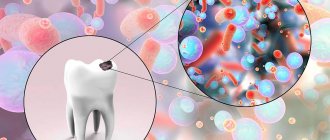Vomit - This is a reflex eruption of the contents of the stomach, and sometimes the duodenum, through the mouth.
The gag reflex is quite complex - it involves various muscle groups. It is controlled by the vomiting center located in the brain stem. By its nature, vomiting is a mechanism by which the body protects itself from poisoning. Normally, vomiting is a reaction to toxic substances entering the gastrointestinal tract or simply something that cannot be digested - for example, too fatty foods. Therefore, after an attack of vomiting, a person often feels relief: the body has been cleansed.
However, the intoxication that caused vomiting may have an internal source, that is, be a consequence of some pathology or disease. It is also possible that the irritation of the nervous system leading to vomiting is not related to the condition of the stomach at all. This makes us perceive vomiting as a very serious, and even ominous, symptom. An attack of vomiting is almost always a sufficient reason to consult a doctor. In case of repeated attacks, you should definitely consult a doctor!
Causes of vomiting
In most cases, vomiting is caused by irritation of the stomach receptors or, in medical terms, has a visceral
origin. The cause is most often acute or chronic diseases of the stomach itself (acute food poisoning, gastritis, stomach ulcers, food allergies). Also, stomach receptors can react to diseases of other organs - the gallbladder, uterus, heart (vomiting is part of the complex of possible symptoms of myocardial infarction).
Vomiting may also be central
origin, that is, caused by pathologies of the central nervous system (brain), such as meningitis, encephalitis, trauma and brain tumors. Vomiting is quite common during migraines. Inner ear problems can also lead to vomiting (in this case, vomiting may occur along with dizziness). If the receptors of the inner ear are excessively irritated (with motion sickness), even a healthy person can vomit, especially if the vestibular apparatus is not trained. Sometimes vomiting is caused by emotional distress (stress) or is a reaction to something that causes extreme disgust (conditioned vomiting).
Irritation of the vomiting center can be caused by toxic substances carried by the bloodstream ( hematogenous-toxic
vomit). Toxic substances can enter the body from the outside (for example, chlorine or carbon monoxide through inhalation), or they can be produced in the body itself as a result of impaired liver or kidney function.
Diagnosis of throat neurosis at the Yusupov Hospital
In order to establish the cause of throat neurosis, doctors at the Yusupov Hospital conduct a comprehensive examination of the patient. Using radiography of the cervical spine, osteochondrosis is detected or excluded. More accurate information is obtained after a computed tomography scan of the spine. Patients undergo laboratory tests (general and biochemical blood tests, thyroid hormone levels).
In order to exclude the organic nature of the disease, doctors perform magnetic resonance and computed tomography of the throat. A comprehensive examination includes Doppler ultrasound of the vessels of the brain and neck, and electromyographic study. Patients are consulted by an otolaryngologist, neurologist, vertebrologist, and psychotherapist.
Vomiting and other symptoms
Vomiting is usually preceded by nausea, because, in essence, vomiting is the resolution of nausea, its logical conclusion. The fact that nausea turned into vomiting indicates the severity of the pathological process. Vomiting spasms can be observed against a background of elevated temperature, accompanied by diarrhea. In addition to food debris, gastric juice and mucus, vomit may contain bile, blood, and pus.
Repeated, periodically recurring and indomitable vomiting exhausts and dehydrates the body, leading to disruption of mineral metabolism and acid-base balance.
- Diarrhea and vomiting
Vomiting and fever
Lethal dose of nicotine for humans
The lethal dose for humans is 0.5 – 1 milligram of nicotine per kilogram of weight.
When smoking one cigarette, a person receives approximately 1 milligram of this substance.
When nicotine intoxication occurs, the prognosis depends on the following factors:
- dose taken,
- age of the victim,
- general health, presence of concomitant diseases,
- duration of intoxication (before medical assistance is provided).
When vomiting is scary
Any attack of vomiting is a very unpleasant experience. Even if a person experiences relief with the resolution of the attack, the vomiting itself is perceived as an extraordinary event, which should not normally occur. Shock to the body, everyday and social inconveniences - all this makes vomiting a process of a different order compared to other reflex actions, such as coughing or sneezing. We always react sharply to vomiting (we don’t ignore it), and rightly so.
However, in some cases, vomiting worries us especially strongly. This is vomiting bile , vomiting blood . Parents are concerned about cases of vomiting in children . Quite often, vomiting is observed during pregnancy , attracting increased attention.
These cases are worth mentioning separately:
- Vomiting bile
Vomiting blood
Vomiting during pregnancy
Vomiting in a child
Nicotine hit
If after smoking a person begins to feel dizzy, has nausea and the urge to vomit, breaks out in a cold sweat, and the skin becomes pale, it means that a nicotine kick has occurred. It can be caused by the following reasons:
- smoking several cigarettes in a row;
- smoking on an empty stomach,
- smoking immediately after a good night's sleep.
This condition has an extremely negative effect on the functioning of the entire body, especially the heart and brain. It can cause the development of hypertension, atherosclerosis, endarteritis or the appearance of malignant tumors.
CODING FROM SMOKING
What to do if you are vomiting
Since anyone can have an attack of vomiting, it is useful to know how you can prevent vomiting, what to do during and immediately after an attack, and when you should definitely consult a doctor.
Nausea is a precursor to vomiting. If you feel nauseous, try opening a window (increase oxygen flow), drinking some sweetened liquid (this will calm your stomach), or sitting or lying down (physical activity increases nausea and vomiting). You can dissolve a validol tablet. If you get motion sickness on the road, take some lollipops with you and suck them on the way. This will help prevent vomiting.
What to do during an attack of vomiting
During an attack, it is important to prevent vomit from entering the respiratory tract. The patient should never lie on his back while vomiting. Do not leave small children unattended if they may be vomiting. An elderly or weakened person needs to be helped to turn on his side, with his head towards the edge of the bed, and a pelvis placed in front of him.
What to do after a bout of vomiting
After an attack, you should rinse your mouth with cold water. If the patient cannot do this himself, you need to moisten a piece of gauze in a soda solution and wipe his mouth.
Immediately after an attack, you can drink only a few sips of water, and only if there is no blood in the vomit. You can drink properly only after 2 hours, and eat only 6-8 hours after the attack. Food should be dietary and gentle; the best thing is porridge with water, rice, low-fat soup.
With repeated bouts of vomiting, dehydration may occur. Therefore, it is necessary to drink a special solution that restores water-electrolyte and acid-base balance.
Reflex severity
The gag reflex manifests itself in different ways. It is better to choose remedies to help cope with it depending on the severity.
Mild degree
It usually does not cause serious problems during dental treatment. You can deal with it using the following methods:
- When the gag reflex is psychological in nature, the dentist can simply distract the patient. To reduce your stress levels, you can refocus your attention the night before your doctor's visit.
- If the gag reflex is caused by touching the mucous membranes, the doctor protects them with a rubber dam. This is a latex sheet that the dentist uses to cover the mucous membrane. This way it protects it from contact with foreign objects. The rubber dam also allows you to isolate soft tissue from the diseased tooth, providing additional protection.
- Anesthesia. Anesthetic drugs help not only relieve pain in the mouth. They have a freezing effect, the mucous membrane becomes less sensitive.
Average degree
It is very important here to reassure the patient and reduce his anxiety. Regular local anesthesia will not have the desired effect, since it only numbs the pain. Using general anesthesia in such cases is not always justified.
Sedation helps cope well with the problem of fear and nausea. The patient is given nitrous oxide to inhale through a mask. He falls into a relaxed state, but is fully conscious. This is the advantage of sedation over anesthesia, since the contact between the dentist and the patient is completely preserved.
Severe degree
It is not always possible to cope with nausea to such an extent with conventional sedatives. Such cases are an indication for the use of general anesthesia.
When should you see a doctor if you are vomiting?
Vomit
- in many cases, a sign that the body is experiencing serious problems and needs cleansing, and therefore, most likely, treatment. If the disease is accompanied by vomiting, this usually indicates that the disease is quite severe.
If the attack of vomiting was a one-time occurrence and there is reason to believe that it was caused by overeating, motion sickness, alcohol poisoning or stress, there is no direct need to consult a doctor. In all other cases, consultation with a doctor is necessary. Especially if attacks are repeated for two days or more, as well as in the presence of diabetes mellitus or other chronic diseases.
Sometimes vomiting requires emergency treatment. You should call an ambulance if:
- vomiting is accompanied by constant or severe abdominal pain;
- there are repeated bouts of vomiting after a head injury;
- along with vomiting, dehydration, dry mouth, and increased urination are observed;
- with deterioration of mental and functional activity in older people;
- there is blood in the vomit (for example, impurities in the form of “coffee grounds”).
Signs of acute nicotine poisoning
When consuming large amounts of nicotine in a short period of time, acute intoxication occurs due to a sharp increase in the level of toxins in the blood. In this case, the person experiences the following symptoms:
- pale skin;
- unsteadiness of gait, loss of coordination;
- sudden jumps in blood pressure and pulse;
- increased sweating;
- pain in the abdomen, head, muscles;
- the appearance of convulsions, shaking hands;
- blue discoloration in the area of the nasolabial triangle;
- impaired vision, swallowing, speech.
If you suspect acute nicotine intoxication, you should immediately seek medical help.
References:
- Guide to addictionology / Axelrod B. A. et al. / ed. V. D. Mendelevich. - St. Petersburg: Speech, 2007.
- Information technology for liberation from alcohol and nicotine addiction, depression / M. A. Tetyushkin / “LitRes”, 2014.
- Geppe N. A. Tobacco smoking in children and adolescents: impact on health status and prevention // Practical Pulmonology. – 2007. – No. 3. – P.15-19.
- Nicotine addiction / (psychoactive addictions) / [comp. N. N. Boyko]. – Ed. 2nd, rev. and additional / Moscow: Native Country, 2009. – 198, [1] p. : ill., table. (Russian Security).
Article verified by an expert
Terekhova Anna Vladimirovna
psychologist-consultant on socio-psychological work with addicted clients and their families. More than 10 years of experience.
Similar articles:
gambling addiction
Cravings and what to do with them?
Harm of drugs to the human body
How to help a drug addict during withdrawal?
Nicotine: effects on the human body
Allergy to nicotine
Cigarette smoke contains many toxic compounds that can cause serious allergies. Intolerance to any toxin can develop in smokers and against the background of a decrease in general immunity.
When an allergy to tobacco appears, it is not enough for a person to completely quit this bad habit, but also try to isolate himself from inhaling cigarette smoke when being near other smokers.











